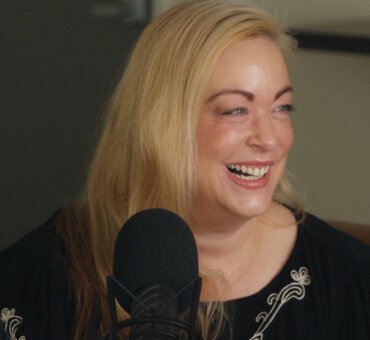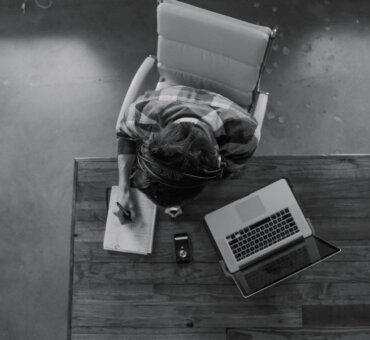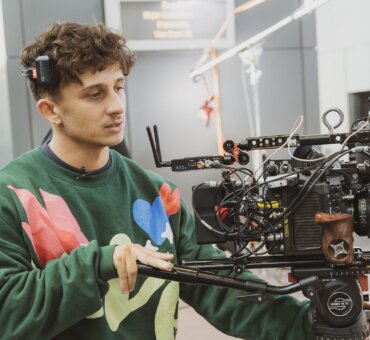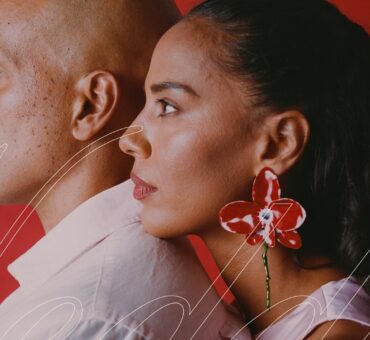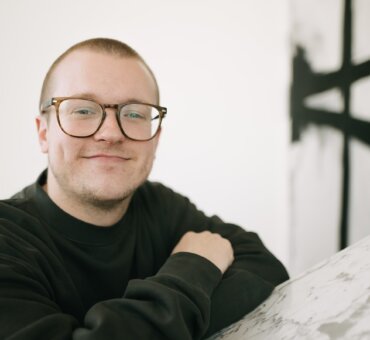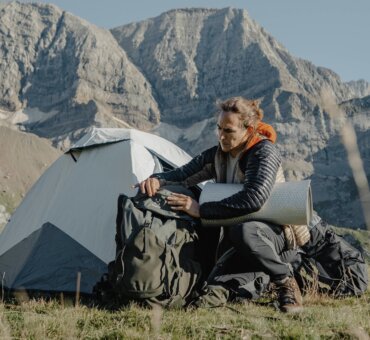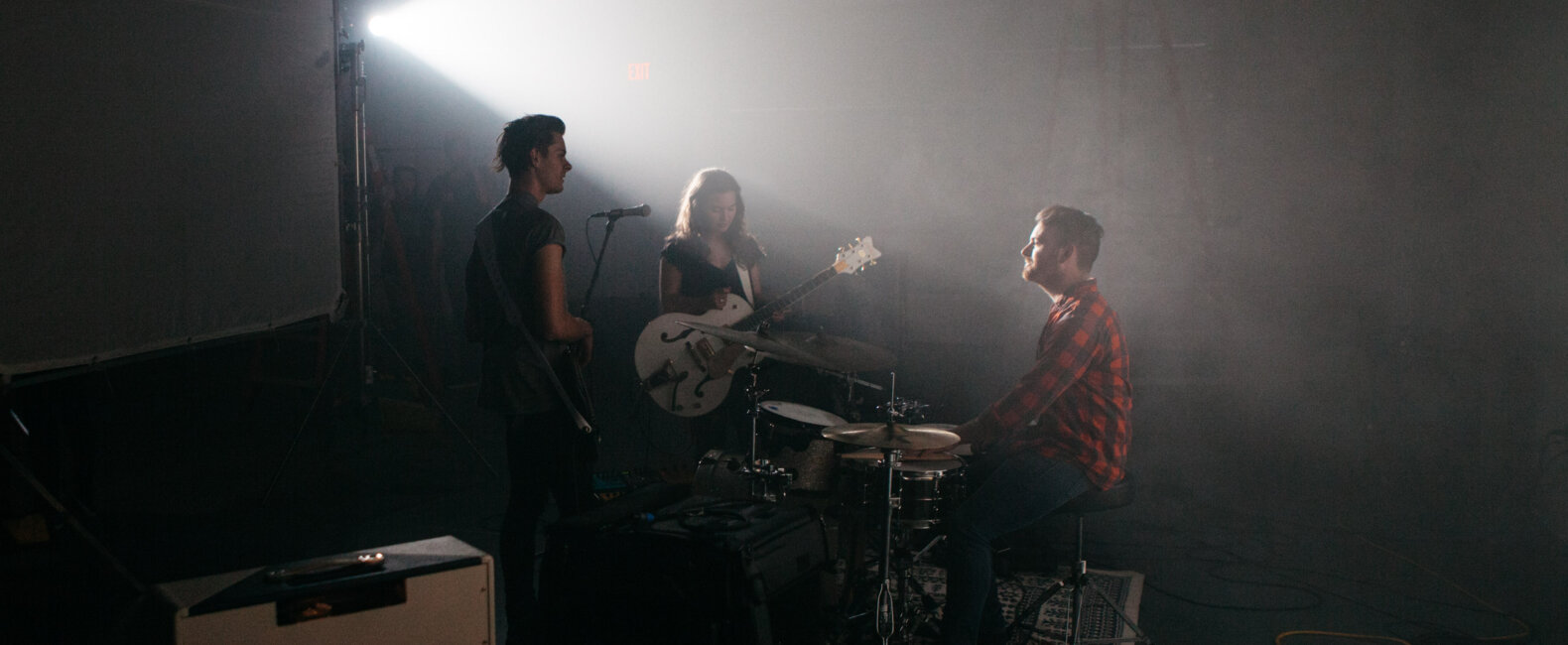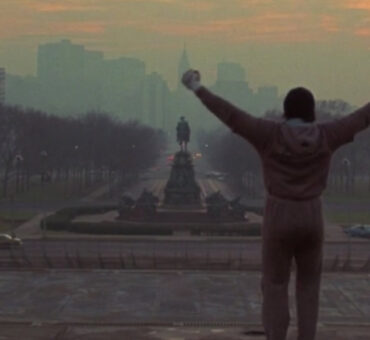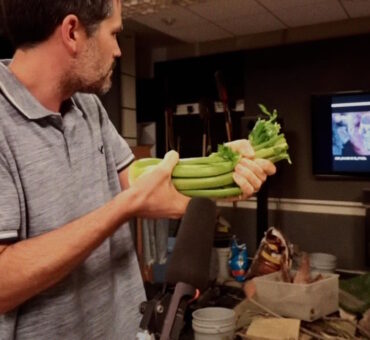“When you have that synchronicity between the picture and the sound, it transcends everything else,” Jeremy Boxer told us. And Jeremy knows. Not only is he a filmmaker himself, but he works as creative director of Film & Video for the most beloved video hosting site in the world: Vimeo. We thought Jeremy would have a good perspective on film, music, and the alchemy that happens when the two come together.
We talked to Jeremy from his office at Vimeo headquarters in New York.

How did you end up at Vimeo?
Jeremy Boxer: I had an interesting journey to Vimeo. The first time I came across them, a video was sent to me when I was looking for a music act to be part of a film festival I was working on at the time. The track was called “Out of the Control,” and it happened to be recorded by one of the founders of Vimeo. This was back around 2007 and I really could see the difference between Vimeo and YouTube. Fast-forward a couple years, and a friend of mine calls me up and asks if I want to pitch for the Vimeo Festival & Awards and see if we can get a job creative directing. We both saw the potential of a Vimeo event. At the time there were only twenty-some people on staff. The pitch went well and I ended up staying on as a freelancer for about six months, at which point I decided to come on full time. In December I’ll have been here five years.
Has it grown a ton since then?
We’re now close to 200 people. There are new people joining all the time.
Do you think film plays a more significant role in our lives than it has in the past?
Absolutely. I did a speech recently where I talked about what effect photography had on the world in the early 1900s in terms of communication — everything from the press to travel to the medical profession. And I think the effect video is having across media is going to have an even more significant impact than photography did back then.

You can get people from all different disciplines to express themselves through video. You see so many different imaginations that you’d never expect.
How so?
Video is going to be everywhere. And then with the advent of VR and these new technologies coming out that will make video even more immersive, I just think it’s going to grow exponentially. Technology lets more filmmakers show what they can do. The price to get a broadcast HD quality picture is pretty much zero. The price to upload it and share it is zero. You can get people from all different disciplines to express themselves through video. You see so many different forms of imagination that you’d never expect.
Do you think that affects the things people are creating?
In what way?
The whole process is so much faster now. You can be influenced by a film, make a new film, upload the film, have your film influence other films. It used to be years in between those steps, but now it can happen so quickly.
Yeah. The cycle of inspiration is rapidly increasing. The time between inspiration and reinterpretation is shortening. I think that’s because people aren’t afraid to just go out and try it. They aren’t afraid to go make things. And I think sites like Vimeo and other video sharing sites enable a much more instantaneous call and response, if you will. We see this all the time on Vimeo. A great video gets all these comments like, “How did you do that? What technique did you use?” Everyone is very giving in that way, and that’s why you see people blossoming.
As someone who sees a ton of films and makes his own, what are your thoughts on the relationship between music and film?
I’ve always been a massive fan of music videos for the same reason I’m a fan of films with amazing scores. When you have that synchronicity between the picture and the sound, it transcends everything else. Music can elevate a moment to a different emotional level much more so than anything else. If I asked you to think about a certain track you remember from a film, it would be almost impossible to separate that track from the images in the film. For example, Quentin Tarantino movies are famous for how they use music, going from his first film, Reservoir Dogs, when he used “Stuck in the Middle with You” during a torture scene. You can’t separate that song from that scene. At least I can’t.

Music can elevate a moment to a different emotional level much more so than anything else.
You bring up a really interesting idea, that soundtracks aren’t just important for how we experience films, but also how we remember them.
Totally. Think about a John Williams score. Think about Jaws. Think about Star Wars. Think about Indiana Jones. That emotional recall is locked in.
Is music a big factor for you when you’re watching Vimeo videos?
Yeah. I always try to watch with a good speaker system at home to get the full experience. It’s very important. I get pulled out of the experience very easily if I feel the music is wrong or if it tonally doesn’t make sense. If it feels off to me, it just takes me out of the whole picture.
Films, especially Vimeo films, seem to be more driven by music than films in the past.
There are times when music can be used as a crutch, and that’s something to watch out for. You shouldn’t be entirely dependent on music for emotional resonance. You want to have the picture and the music working hand in hand in order to magnify the experience of both. Music is so important for the overall piece, but it’s a balancing act. If you tip too far to one side or the other, it will completely take you out of the experience. You want to use all the tools at your disposal to immerse people in your film.
When you’re looking for music, it’s really important to understand what it is you’re trying to say with it. There’s such a great connection between music and film that when it’s done properly, it just elevates everything. It’s all about harnessing that power.

When filmmakers harness the power of music and film, using the two hand in hand, they can create experiences unlike any other. Experiences that are not only transcendent in the moment, but stick with you long afterward.


